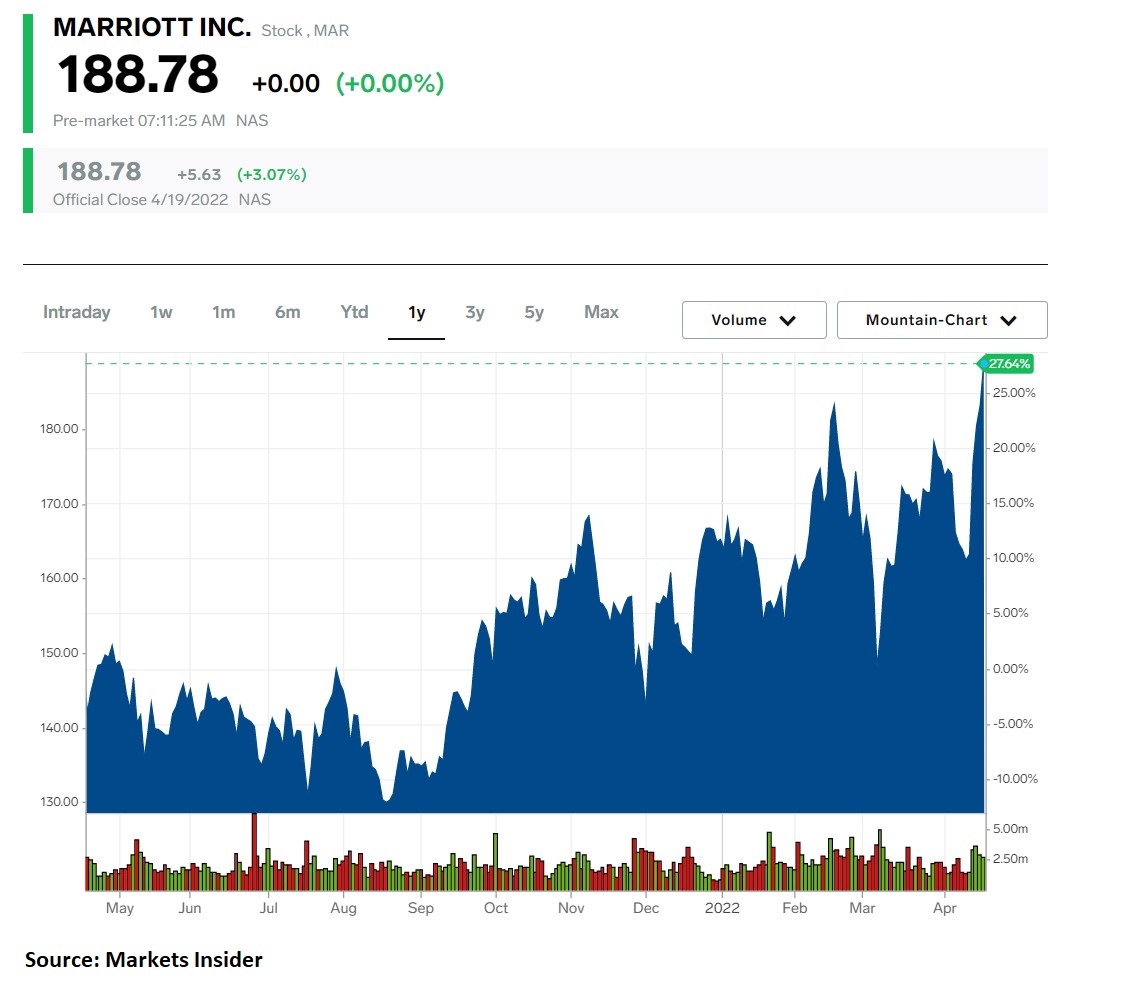Best consumer discretionary stocks to buy amid a strong US economic growth
The US economy grows faster than anticipated, and demand for consumer discretionary products increased. Here are three consumer discretionary stocks to consider: MAR, SBUX, and AMZN.
The consumer discretionary sector is made of companies providing goods and services that are not necessary for survival. For instance, luxury goods or stays at hotels.
As such, economic conditions affect the demand for consumer discretionary products. Because the US economy is forecast to grow steadily in 2022, here are three consumer discretionary stocks to buy: Marriott International, Starbucks, and Amazon.
Marriott International
Marriott International (NASDAQ:MAR) is one of the largest companies in the world that operates franchises and hotels, among others. Founded in 1927, it employs over 120,000 people, and it operates with a gross profit margin of 77.69%.
The stock price gained +15.17% YTD and stays close to its all-time high. Marriott International does not pay a dividend.
Most recently, Marriott signed an agreement with Baraka Lodges to expand into the African safari segment.

Starbucks
Starbucks (NASDAQ:SBUX) needs no introduction as its brand has gained global recognition. It operates specialty coffee restaurants worldwide and employs close to 400,000 people.
Starbucks’s stock price has declined in 2022 and it trades at a P/E GAAP ratio of 21.95 for the past twelve months.
Unlike Marriott, Starbucks does pay a dividend. The forward dividend yield is 2.41%, and the payout ratio is 56.12%. Moreover, Starbucks raised the dividend paid to shareholders for the past eleven consecutive years.
Amazon
Amazon (NASDAQ:AMZN) is another company with a brand that needs no introduction. It does not pay a dividend, but its stock price surged in the last few years.
For instance, in 2016, Amazon’s stock price traded close to $500 and now it trades above $3,150.
Amazon operated with a gross profit margin of 42.03% for the past twelve months – higher than the sector median by 16.03%. Moreover, almost all analysts covering the stock have buy ratings – out of 100 analysts, 98 have issued buy ratings, 1 has a sell rating, and 1 a neutral rating.
